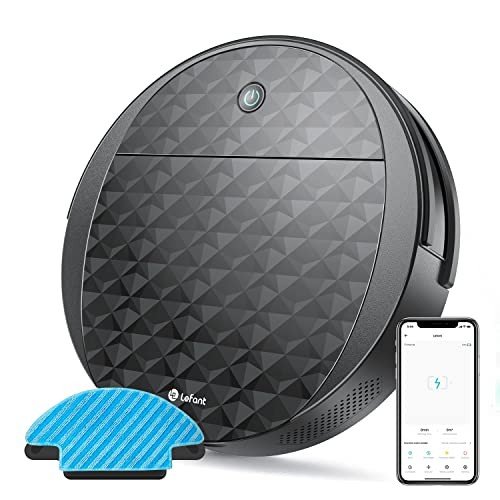The Rise of Automatic Vacuum Cleaners: A Comprehensive Guide
In today's fast-paced world, maintaining a tidy home can frequently feel like a herculean task. As such, automatic vacuum-- commonly referred to as robotic vacuums-- have surged in popularity, offering a practical option for busy families. This post explores the essential features, benefits, types, and upkeep of automatic vacuum cleaners, enabling customers to make educated decisions.
Understanding Automatic Vacuum Cleaners
Automatic vacuum are autonomous devices designed to clean floors with very little human intervention. Geared up with advanced sensors and programs, these gadgets can browse around furnishings, adjust to various floor types, and even recharge themselves.
Key Features of Automatic Vacuum Cleaners
| Feature | Description |
|---|---|
| Navigation System | Uses sensing units and mapping technology to avoid challenges and effectively cover floor area. |
| Cleaning Modes | Numerous modes such as auto, area, edge, and arranged cleaning for various requirements. |
| Smart Connectivity | Many designs can link to Wi-Fi, allowing control via mobile phone apps or voice-activated devices like Alexa or Google Assistant. |
| Self-Charging | Immediately returns to its charging dock when the battery is low. |
| Dustbin Capacity | Different designs include differing sizes of dustbins, impacting how typically they need to be emptied. |
Benefits of Automatic Vacuum Cleaners
Automatic vacuum cleaners bring several benefits to the table:
Convenience
- Hands-Free Cleaning: Keep floors tidy with minimal effort. When configured, the vacuum operates autonomously, releasing up time for other jobs.
- Push-button control: Users can begin, stop, or schedule cleansings from their smartphones, making it easier to manage cleaning routines.
Performance
- Set up Cleaning: Set your vacuum to clean while you're out, ensuring you go back to a tidy home.
- Adaptive Cleaning: These vacuums often change their cleaning patterns based upon floor type, enhancing performance on hard surface areas and carpets alike.
Cost-Effectiveness
- Decreased Labor Costs: While there is an in advance financial investment, ongoing savings develop from less dependence on professional cleaning company.
- Resilience: Many automatic vacuums are built to last, with exchangeable parts that extend their life expectancy, making them a rewarding long-lasting investment.
Kinds Of Automatic Vacuum Cleaners
There are several classifications of robotic vacuums, each catering to various needs:
Basic Robotic Vacuums:
- Suitable for general cleaning and available at moderate rate points.
- Minimal in features; frequently do not have innovative navigation and clever connectivity.
Smart Robotic Vacuums:
- Equipped with Wi-Fi connectivity and can be managed by means of mobile apps.
- May consist of features like mapping technology for effective cleaning routes.
Hybrid Models:
- Combine vacuuming and mopping functions, suitable for surface areas requiring both types of cleaning.
- Perfect for households with animals or children.
Specialized Robotic Vacuums:
- Designed for specific jobs, like animal hair removal, and might use specialized brushes and suction abilities.
Upkeep of Automatic Vacuum Cleaners
To ensure ideal efficiency, routine maintenance is important:
Cleaning Schedules
- Dustbin Emptying: Empty the dustbin after every usage or when the vacuum notifies that it is full.
- Filter Replacement: Depending on the model, filters might need to be cleaned or replaced every couple of months.
Routine Checks
- Brushes and Wheels: Inspect and clean the brushes and wheels frequently to eliminate hair and debris that may hinder performance.
- Sensors and Cameras: Wipe the bump sensing units and electronic cameras to ensure unblocked navigation.
Regularly Asked Questions (FAQs)
1. Just how much do automatic vacuum cleaners cost?
Rates differ commonly-- from budget designs beginning around ₤ 150 to superior models costing above ₤ 1,000. Higher-priced options usually use innovative functions like smart mapping, longer battery life, and specialized cleaning modes.
2. Can automatic vacuum cleaners manage pet hair?
Yes, most robotic vacuums are created to manage animal hair. Try to find robot mops designed with strong suction and family pet hair filtration systems.
3. How long do automatic vacuum last?
The life-span of a robotic vacuum can range from 3 to 5 years, depending upon the model and upkeep. Regular upkeep can extend its longevity.
4. Are automatic vacuum reliable on carpets?
Most modern-day automatic vacuum cleaners are equipped with sensing units that discover carpeted surface areas and change suction power accordingly. However, effectiveness can differ based on the kind of carpet.
5. Can robotic vacuums deal with several floor types?
Yes, lots of robotic vacuums can perfectly transition in between floor types, such as wood, laminate, tile, and carpets, enhancing their cleaning strategy for each surface area.
The arrival of automatic vacuum cleaners has transformed household cleaning, offering benefit and flexibility from the often tiresome chore of floor maintenance. By understanding the various types, features, and upkeep requirements, customers can make educated options and eventually enjoy a cleaner, more organized living area. Whether you're a hectic expert, a family pet owner, or just somebody who values a tidy home, buying an automatic vacuum cleaner can significantly enhance your lifestyle.

